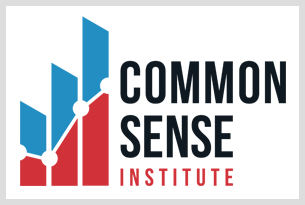Total Impact per Household is $1,406
About the Author
Steven L. Byers is a Senior Economist for the Common Sense Institute.
About Common Sense Institute
Common Sense Institute is a non-partisan research organization dedicated to the protection and promotion of Colorado’s economy. CSI is at the forefront of important discussions concerning the future of free enterprise and aims to have an impact on the issues that matter most to Coloradans. CSI’s mission is to examine the fiscal impacts of policies, initiatives, and proposed laws so that Coloradans are educated and informed on issues impacting their lives. CSI employs rigorous research techniques and dynamic modeling to evaluate the potential impact of these measures on the economy and individual opportunity.
Teams & Fellows Statement
CSI is committed to independent, in-depth research that examines the impacts of policies, initiatives, and proposed laws so that Coloradans are educated and informed on issues impacting their lives. CSI’s commitment to institutional independence is rooted in the individual independence of our researchers, economists, and fellows. At the core of CSI’s mission is a belief in the power of the free enterprise system. Our work explores ideas that protect and promote jobs and the economy, and the CSI team and fellows take part in this pursuit with academic freedom. Our team’s work is informed by data-driven research and evidence. The views and opinions of fellows do not reflect the institutional views of CSI. CSI operates independently of any political party and does not take positions.
Pending 2024 Colorado Property Tax Increase
The combination of the repeal of the Gallagher Amendment in 2020 with the rapid increase in home prices during the last assessment period means property taxes for most homeowners are set to increase significantly in 2024. Homeowners now know their final assessed values and are awaiting their local governments to establish final mill levies which may still offer some relief.
Proposition HH, the statewide ballot measure referred to voters by the state legislature, failed in the November election. While Proposition HH offered limited property tax relief, it also came with other significant impacts. CSI’s prior research detailed those impacts.[i]
- Under current law, the median priced home in Colorado will see a 36% increase in property taxes next year. Under Proposition HH, the average increase would have been 26%.
- Under Proposition HH, the state’s TABOR spending limit would have been increased, raising state taxes by as much as $9.9 billion over the next decade. This could have more than offset any property tax relief estimated to be $9.92 billion over that same period.
Under current law, property tax revenue is projected to grow $2.13B, or $895 per household, above its historic baseline growth rate. If total state property tax revenue grew at its long-run annual growth rate of 5.9%, revenue would grow from $12.8B last year to $13.5B this year, an increase of $700M. Instead, it is projected to grow to $15.6B under current law.
For most homeowners along the front range, the projected increase in property taxes will be more than $1,000. Higher property taxes produce a drag on the Colorado economy resulting in slower job growth, a reduction in GDP, and a decline in household income. Dynamic modeling produced the following impacts on the economy:
- 17,400 fewer jobs
- $942M reduction in state GDP
- $511 reduction in personal income per household from dynamic impacts
The combined impact of the increase in property taxes and loss of household personal income totals -$1,406 per Colorado household.
| Total State Property Tax Revenue in 2024 from 2023 Property Taxes | |
| Under Current Law (No Change in Mills) | $15.6 B |
| Under 2000-2022 Long Run Growth in Total Tax Revenue | $13.5 |
| Difference in Total Revenue from Property Taxes | $2.1B |
| Increase in Property Taxes per Household | $895 |
Using REMI, a dynamic general equilibrium model of the Colorado economy, CSI estimates the impact of the $2.13B increase in total state property taxes collected by the Colorado Department of Revenue on employment, GDP, and personal income per household.
The results are shown in the following table. Higher property taxes result in 17,400 lost jobs, a $942 million reduction in GDP, and a $511 decrease in personal income per household. The combined impact on households from the property tax increase and personal income loss is $1,406.
| Economic Impact of Additional Property Taxes | |
| Employment Loss | -17,406 |
| GDP Reduction | -$942 M |
| Personal Income Loss | -$1,219 B |
| Personal Income Loss per Household Dynamic Impact of Property Tax Increase | $511 |
| Total Impact on per Household (Property tax increase above baseline + personal income loss from dynamic impacts) | $1,406 |
RESOURCES
[i] https://commonsenseinstituteco.org/prop-hh/

